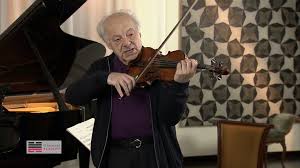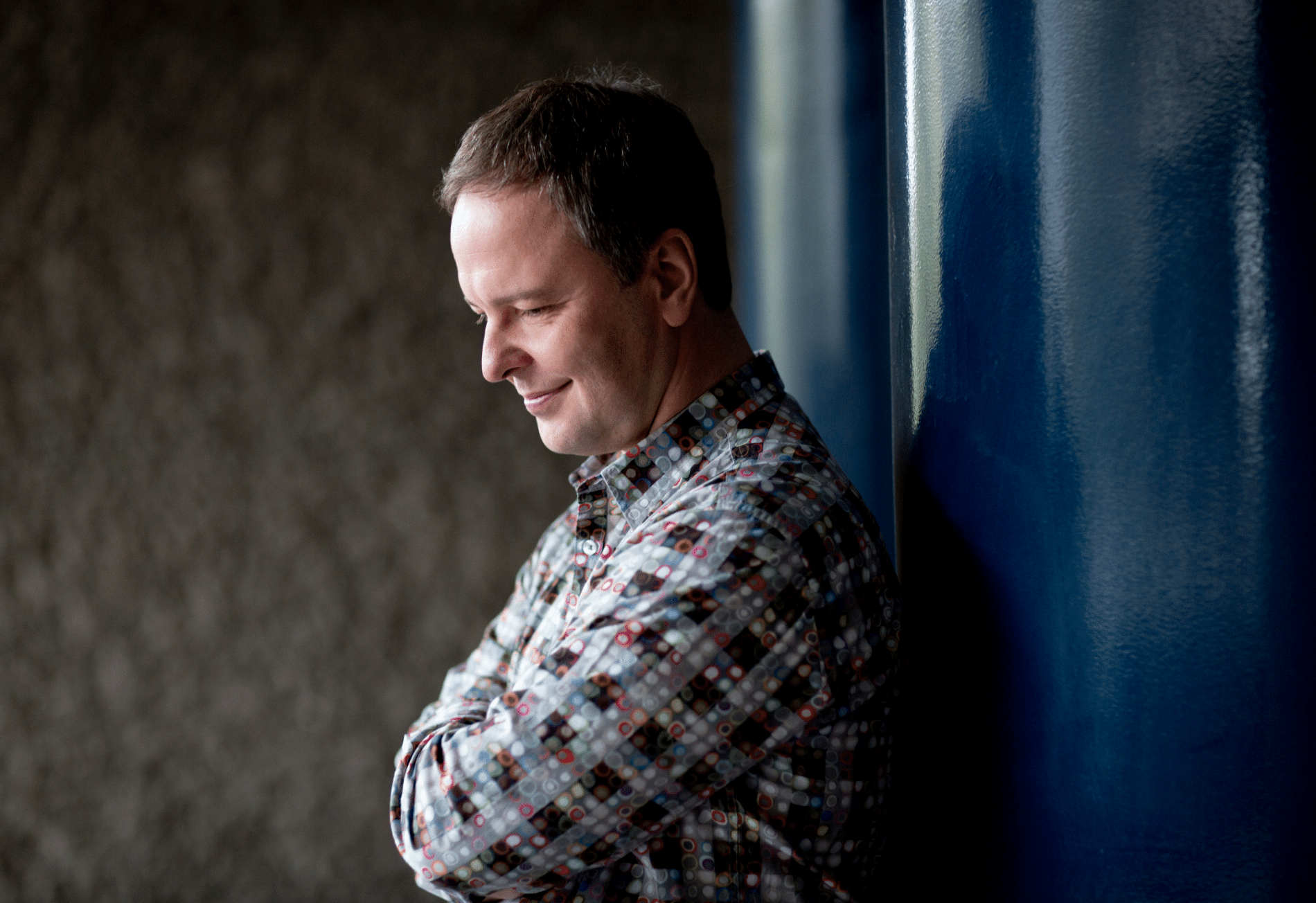I gave up a career in the defence industry to be an opera singer
mainOur story of how violinist Jen Lindsay saved Aida last week by standing up in the orchestra to sing an aria when the soprano missed an entry went viral worldwide.
Then we discovered that Jen is an aspiring opera singer, applying for auditions around the US.
Now the story gets even more interesting. Jen is a mathematics and computer science grad who went to work in the defence industry until a voice in her head said: you can’t gve up the opera dream.
Here’s Jen’s story, exclusive to Slipped Disc.

I grew up in a household steeped in classical music. Neither of my parents were musicians, but they listened avidly to the likes of Mozart, Beethoven, Handel and Tchaikovsky. One day they read a book that said playing an instrument accelerated neurological development in young children, and so at age 3 I began violin lessons in the Suzuki method. Several years later, I started singing along to opera recordings with uncanny accuracy, so they signed me up for a local children’s chorus whose director eventually suggested that I start taking private lessons.
Throughout high school I continued studying both violin and voice, joining several youth orchestras and doing local competitions where I had some success despite my aversion to practicing. When it came time to apply to college, my teachers encouraged me to consider a conservatory. However, I also excelled in math and science, and that seemed like a safer career bet. I put music on the back burner and went on to receive a BS in Math at Harvey Mudd College, a MS in Operations Research at Columbia University and a MS in Computer Science at Johns Hopkins University, after which I began a career as a programmer in the defense industry. However, after several years of this sort of work, the initial excitement of my career choice faded and I began to feel like something significant was missing from my life.
A few years ago, a friend invited me to see him in a performance of The Marriage of Figaro. I thought it was a joke, because the only opera company I knew of in Los Angeles was LA Opera, but he assured me it was the real deal, so I duly showed up. There, in a church sanctuary, he and several other singers did justice to Mozart despite budgetary restrictions, accompanied by a pianist and a string quartet. Afterwards I cornered him and asked how I could get involved and he told me about some upcoming auditions. I ended up being cast as a witch in Verdi’s Macbeth. It was my very first staged opera production, and I was hooked.
I found a voice teacher and began studying again, this time practicing regularly. After a year of auditioning on the local circuit I landed a Fiordiligi cover, impressing them so much they hired me back for subsequent productions. I had finally broken out, but the experience left me hungry for more. On my teacher’s suggestion I applied to young artist programs, but I received not a single audition. I realized then that my resume looked like a joke: no music degrees, no awards, only local credits. I had to find a way to be taken seriously, so I applied to several national competitions. I ended up reaching the semi-finals round in 3 of them and the finals round in a 4th. With these accolades I finally looked like a real contender, and in 2016 I was accepted to young artist programs at Opera Naples in FL and the Caramoor Bel Canto Festival in NY.
This year, I was admitted to a third program at Opera Southwest, forthcoming this October. I’ve also continued pursing local opportunities, most recently—-and semi-famously—-as the title role cover for Aida with the Marina Del Rey Symphony. Each time I’m in a production with orchestra I try to find a way to play at least one rehearsal to learn the score better, but this often doesn’t work out because there is limited pit space, or because orchestra rehearsals conflict with singer rehearsals. So far I’ve only played two operas, La Traviata and Aida, but I hope to play more in the future. It would be amazing to sit in with LA Opera Orchestra, but that’s probably a pipe dream.
I realize that my chances at an international opera career are slim to none, but if I don’t give it a shot I will come to regret it in my later years. I’m hopeful that I will eventually see some success at the regional level, and I would love to have the chance to travel the country covering roles and playing in the orchestra as a violinist – a sopranolinist, if you will. I’ve also developed a knack for resilience, due to the constant rejection of the audition circuit, and I’ve made some truly wonderful friends. However it all works out, I’m definitely creating a much more exciting and fulfilling life than before, and that alone is worth all the hard work.






A wonderful story! Thanks for posting it.
What would be said of Caruso and Gigli….no pedigree, not suave, no IT background, no famous teachers or schools, hand me down clothes……..nah, these guys will never make it.
Dear Jen, while I appreciate your courage of living your own dream, I am afraid at the end of the day you would be much better off with a day job in the defense industry.
I’ve worked in IT for 25 years and can tell you that geeks — at any age — are always in high demand. She will never want for work in tech, but the clock in the vocal arts has a definite limit. I support her decision wholeheartedly: she is, as old Joe Campbell used to say, “following her bliss.” Tech, defense, logistics, and all that will not fade away, but her voice will. Let her follow that bliss and join me in wishing her great success.
I totally agree that genuine capable geeks and IT specialists will be in high demand no matter of age in the foreseeable future. However, just having a university diploma in computer science doesn’t mean much, if anything at all. How many projects and forks does she have in GitHub? At least now we have all those “Diversity Programs”, so it’s much better to get aboard sooner than later.
Wow! you are just one serious ray of sunshine, aren’t you.
Thank you. I’m flattered.
Did you not read the part where she mentions “several years of this sort of work”? That’s more than just a diploma.
She’s got a BS in mathematics from Harvey Mudd. And an MS in CS from Johns Hopkins and an MS in OR from Columbia. These aren’t just your run of the mill Universities.
She’ll do just fine.
Here’s the deal: Does she have a well trained voice and musicianship? Does she have a singular voice? Does she have something new and/or distinctive to offer through her voice? Can she sing and project more than mere notes (the stuff between the lines)? Does she have genuine style and class? No to all? Back to coding. Yes to all or most? Keep pursuing the dream. But there are no guarantees in art. Inevitably, the wheat shall be separated from the chaff.
I’ve heard her (and song in a few concerts with her) live. I’m a trained soprano, and I’m good…but Jen is spectacular, graceful, pure and powerful voice, with great flexibility, she’s highly professional in her behavior, and a lovely person to boot. She deserves every minute of success, and bigger and better stages.
She’s also wicked smart, and a fine dress designer as well.
everyone has a singular voice. also, “style and class” are pretty superficial things that can be purchased at a nice store if one feels they are so important
This is categorically false. Sadly, opera is littered with a dime a dozen voices one can’t tell apart to save one’s life. Bastard voices without signature. Let alone class and pedigree.
It seems you disprove your previous statement that she needs to have a distinctive voice in order to have a career.
pedigree? FFS, we aren’t talking about AKC dogs.
Katherine — in fairness, you should be aware that musicians* talk about “pedigree” all the time. Who did they person study with, who did their teacher study with, are they a disciple of this or that school, etc. It’s helpful in forming an opinion about someone’s playing or singing, without having to actually hear them (or use one’s own judgment).
* (or pretentious music-lovers anyway — actual musicians tend to know that it doesn’t matter)
An interesting story. I gave up my carrier in the Austrian Ministry of Defense in 2012 as strategist und scientist an a unique position (holding a professorship and being the head of an institute) – to become a writer in poetic philosophy. Everything is possible if your inner voice is strong enough. Never regetted my decision for a single moment.
Thank you for sharing your encouraging and inspiring story.
I can well imagine there aren’t a hell lot of things to do in the BMLVS. But USA is for sure a totally different league in terms of national defence matters .
This is the kind of comment I like to read – positive! You may not be wealthy at the end of it all, but got for it or you’ll regret it. Many a person made it, as I’ve seen as a singer myself, with saving the day or standing in for people. You don’t go in to be a star, you go in to make music and make a difference!
Sorry, but this screams pre-arranged publicity stunt to boost a career that clearly wasn’t making it through the normal channels. That’s no reflection on the talent, but I’ve seen these things too often.
I feel exactly the same. But most people will buy the story. So here you go.
say what you want, but it would be super unlikely an orchestra, another soprano, a director would all stage something like this during a rehearsal just so a “failing” soprano could get some publicity. We’re a fairly supportive community around here, but there are enough sopranos to choose from that we aren’t taking votes on who to send to the media gods.
It’s not quite a miracle that she knew the part, as she was the cover for the role, but the reality is that she’s a marvelously gifted musician, playing in the orchestra, who was prepared, and ready to sing pretty brilliantly without a warmup or warning.
Enjoy your cynicism though.
People,People
Why some of you ALWAYS have to be negative about certain things and certain musicians??
Let Ms Lindsay do it her way and enjoy her own choices and opportunities.
Yes it is a difficult profession,being a musician BUT any profession taken seriously is demanding,and if you love what you do in life…so be it.
Now take a deep breath and stop trying to find “corruption and deceit” on this story.
The woman is pursuing her dream and the response here is an explosion of snarky criticism from a bunch of anonymous non-entities who are without doubt a talentless bowl of blahhh who will never get over themselves.
Certainly not so talented as a cheerleader like you.
Could not agree more John!!
Let the naysayers continue naysaying. Ungeheuer, Analeck, et al. are part of the weeding-out process — a very small part, to be sure, but a part nonetheless.
only if one is foolish enough to listen to them
They’re still part of the weeding-out process, even if they don’t accomplish their goal. We’ve all made it past people who told us we wouldn’t.
May I ask what a weeding-out process is? I couldn’t find it in the dictionary.
It wouldn’t be in the dictionary. It’s a colloquial term in English (American English, anyway — not sure about elsewhere). However, the process is familiar to most people who have gone into a competitive profession. “Weeding out” refers to the practice, in gardening, of pulling weeds out of your garden so your desired plants can grow. Sometimes this includes pulling out some of the desired plants if there are too many, too close together. It normally refers to those who quit because they become discouraged, not those whose interests shift elsewhere.
As an example, I’ll outline one possible career path toward becoming a professional musician. After each step, there will be some who choose to persist, and some who choose to quit. The ones who quit, at whatever stage, have been “weeded out.” (I use the term “quit” to mean “quit pursuing it as a professional goal.” Many, many people continue to play for fun.)
1. Start playing an instrument in childhood. It soon becomes clear that it’s more difficult than expected. Continue or quit?
2. Becoming good at your instrument requires sacrifice of other interests. You may have to choose between your instrument and your favorite sport, for example. Continue or quit?
3. After sacrificing your social life in order to practice, you audition for your local youth orchestra and don’t get in. Continue or quit? (At each step, there is usually a friend, teacher, or parent who lets you know that, if you really had potential, you would have succeeded. People often take this advice and quit at that step, however far they’ve gotten.)
4. After practicing harder and getting in the following year (or not), you audition for a famous summer music camp and don’t get in. Continue or quit?
5. After practicing even harder and getting into the music camp the following year (or not), you audition for several famous music schools and don’t get into the one you wanted. Continue or quit?
6. While practicing hard at your 2nd- or 3rd-choice music school, you audition for prestigious summer music festivals and don’t get in. Continue or quit?
7. Grad school auditions. You still don’t get into Juilliard. Continue or quit? (By this point, the issue of student debt often comes up: not only are you possibly a failure, but there’s the increasingly doubtful question of whether you’ll ever be able to pay off your student loans.)
8. Orchestra auditions & competitions. You don’t make it to the finals. How many times do you keep trying?
9. You win a job. It doesn’t pay very much. Do you look for extra work in your field (teaching, freelancing), or look for extra work outside your field (serve coffee, apply the skills you learned while working during one of your music-festival-free summers, go to law school), or quit?
10. You audition for better-paying jobs, or try to get better-paying freelance gigs, with limited or no success. How long do you keep trying? Reassess options from step 9.
11. After 5-10-15-20-25 years, people still inform you that if you were any good, you’d be in the New York Philharmonic; ask you if you get paid for what you do, then tell you that if you truly loved it you should do it for free; ask what you do for a living, then say “no, I meant what do you do for a job;” and so on. Meanwhile, you still don’t have any money. Continue to reassess options from step 9.
All musicians have known, and sometimes been, talented, hard-working people who make it to a certain step in this process and then no further.
Hope this explanation is helpful.
Thank you very much for the detailed and insightful explanation. We definitely need more such quality posts here.
I would have stopped at Step 6 and applied music in an amateur situation with other like-minded people. A friend who is a trombonist once told me that if you’re not as good as somebody in the Chicago Symphony by age 19 you’ll never make it!! He remained an amateur with a musicology career and an active life as a jazz musician.,
Ergo; the one missing ingredient in the interesting progressions of Bruce is mentorship and guidance. I’ve seen far too many embittered ‘artists’ who keep screaming about ‘inequality’ and join the ever-burgeoning bandwagon of victims. And they’re resentful of people who’ve been successful and who have made lots of money, often accusing them of fraud, exploitation and self-interest. There’s a growing army of such people and they never understand that the person who has made that money and success has often worked 80-100 hours a week. You can call that ‘practice’, loss of social life and delayed gratification if you like.
After over 60 years on the planet my advice is a careful mixture of talent and pragmatism.
You would have stopped at step 6. OK. I’m actually at step 12, which I did not list: start a second career in an unrelated field (after 25 years in music) while maintaining the first one.
I know lots of people who decided not to go past step 4 or 5 (“I’ll audition for Juilliard, and if I don’t get in, I’ll become an architect”), and who maintain their love of playing music without having to connect it to things like paying bills.
I’ve also known people who decided to go into music because they were always good at it, and then realized, once they had gotten to about step 9, that they didn’t actually like it that much. What they really liked was the striving, the competition, the winning; and when all that stopped, what was left wasn’t enough.
Not sure what to make of the resentment you mention. Is the “inequality” they scream about against people who did make it into the Chicago Symphony and now make a lot more money than they do? Or against people who went to medical school and now make a lot more money than they do? Either way, I’m not familiar with it — although I have occasionally railed against the condescension of people who, by some logic I can’t quite grasp, seem to think that one should be a musician for free because it’s hard to make a living at it. Or is it the resentment expressed against people like Slipped Disc’s own favorite pianist, Khatia Buniatishvili? A career as a soloist is an entirely different kind of journey, and one that I’m not prepared to address.
Also, I have a question about the mention of mentorship/guidance, which comes right before the resentment/ inequality/ victim mentality part of your post. Are you saying that if people had more mentorship & guidance, they might not be so disillusioned when they find out what being a musician is really like? In my experience, music teachers really do try to paint a realistic picture; it’s usually the young, idealistic (and ambitious) student who is impervious to pragmatism and/or think “but I’m going to be the exception!” (Those who are “pervious” tend to quit at stage 4 or 5.) Or are you saying that young people learn to be resentful from their resentful mentors? Or something else?
Why would anyone think they can judge a singer without actually hearing her perform?
LOLOLOL. That’s priceless 😀
Lots of Beckmesserei here. Envious because Jen decides to sing? Envious of her perhaps because of your own unfulfilled, unrealized dreams? Be human, and rejoice with Jen. And if you need to beckmesser, go into your room without computer or wifi connected device, and rant at yourself.
@Bruce; thanks for your comments and I’m glad you are successful. Obviously you made a key decision (pun intended) which was the right one. I’m referring to those many who press on doggedly only to become ‘failures’ when they should have stopped years ago and reappraised. That’s when the resentment sets in. And a good mentor might not necessarily be a teacher but an experienced and worldly person from the extended family, a peer or a workplace colleague. This people can often turn the lights on and provide guidance when others tend to be overly optimistic or just don’t know about the real world at all. Plenty of people have had career changes from something TO music (Schumann, Brahms, Jeffrey Tate – lots) but how many have the strength to say “this isn’t working; I need to regroup and reappraise”.
Thanks — although “successful” is a relative term. “Stubborn,” “blind,” and “foolish” could be applied with equal (or possibly greater) accuracy.
I agree with your clarified warning about resentment; however, resentment can set in no matter how successful the person is — some people will feel cheated and put-upon no matter how high they climb (one used to hear stories of people with lead roles at the Met complaining about not having the “star” dressing room), and others won’t become bitter no matter how disappointing their accomplishments may look to others. But of course the complainers look like a huge majority, since we never hear anything from the happy ones.
P.S. Plenty of people have had career changes from something TO music (Schumann, Brahms, Jeffrey Tate – lots) but how many have the strength to say “this isn’t working; I need to regroup and reappraise”.
The answer is “plenty.”
Another thing that this conversation finally reminded me about was this New York Times article from 2004, about what Juilliard alumni were doing 10 years after graduation: http://www.nytimes.com/2004/12/12/arts/music/the-juilliard-effect-ten-years-later.html
(I don’t know if there has been another article like this, or a follow-up to this one; IMHO it would be interesting.)